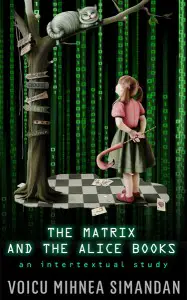
Julia Kristeva is famous for having written about a wide variety of topics, including semiotics, linguistics, feminism, psychoanalysis, and art, to name just a few. Though, for many, Kristeva is the literary critic who coined the term intertextuality in her first book Desire in Language: A Semiotic Approach to Literature and Art (1980). Here are my top 10 quotes from Kristeva’s large body of work, with an emphasis on Powers of Horror: an Essay on Abjection (1982), maybe one of the most frequently quoted studies written by Julia Kristeva:
1. “A wound with blood and pus, or the sickly, acrid smell of sweat, of decay, does not signify death. In the presence of signified death—a flat encephalograph, for instance—I would understand, react, or accept. No, as in true theater, without makeup or masks, refuse and corpses show me what I permanently thrust aside in order to live. These body fluids, this defilement, this shit are what life withstands, hardly and with difficulty, on the part of death. There, I am at the border of my condition as a living being.” (Powers of Horror: an Essay on Abjection)
2. “If it is not possible to say of a woman what she is (without running the risk of abolishing her difference), would it perhaps be different concerning the mother, since that is the only function of the ‘other sex’ to which we can definitively attribute existence?” (Stabat Matter)
3. “Today’s milestone is human madness. Politics is a part of it, particularly in its lethal outbursts. Politics is not, as it was for Hannah Arendt, the field where human freedom is unfurled. The modern world, the world of world war, the Third World, the underground world of death that acts upon us, do not have the civilized splendor of the Greek city state. The modern political domain is massively, in totalitarian fashion, social, leveling, exhausting. Hence madness is a space of antisocial, apolitical, and paradoxically free individuation.” (Black Sun: Depression and Melancholia)
4. “Abjection is above all ambiguity. Because, while releasing a hold, it does not radically cut off the subject from what threatens it — on the contrary, abjection acknowledges it to be in perpetual danger.” (Powers of Horror: an Essay on Abjection)
5. “That faith be analyzable does not necessarily imply a method for getting by without it…” (The Incredible Need to Believe)
6. “The other that will guide you and itself through this dissolution is a rhythm, text, music, and within language, a text. But what is the connection that holds you both together? Counter-desire, the negative of desire, inside-out desire, capable of questioning (or provoking) its own infinite quest. Romantic, filial, adolescent, exclusive, blind and Oedipal: it is all that, but for others. It returns to where you are, both of you, disappointed, irritated, ambitious, in love with history, critical, on the edge and even in the midst of its own identity crisis; a crisis of enunciation and of the interdependence of its movements, an instinctual drive that descends in waves, tearing apart the symbolic thesis.” (Desire and Language: A Semiotic Approach to Literature and Art)
7. “The Abject confronts us… with our earliest attempts to release the hold of maternal entity even before ex-isting outside of her…. It is a violent, clumsy breaking away, with the constant risk of falling back under the sway of power as securing as it is stifling.” (Powers of Horror: an Essay on Abjection)
8. “Naming suffering, exalting it, dissecting it into its smallest components – that is doubtless a way to curb mourning.” (Black Sun: Depression and Melancholia)
9. “When the starry sky, a vista of open seas, or a stained-glass window shedding purple beams fascinate me, there is a cluster of meaning, of colors, of words, of caresses, there are light touches, scents, sighs, cadences that arise, shroud me, carry me away, and sweep me beyond the things I see, hear, or think, The ‘sublime’ object dissolves in the raptures of a bottomless memory. It is such a memory, which, from stopping point to stopping point, remembrance to remembrance, love to love, transfers that object to the refulgent point of the dazzlement in which I stray in order to be.” (Powers of Horror: an Essay on Abjection)
10. “[the abject] is simply a frontier, a repulsive gift that the Other, having become alter ego, drops so that the ‘I’ does not disappear in it but finds, in that sublime alienation, a forfeited existence.” (Powers of Horror: an Essay on Abjection)
My intertextual study The Matrix and the Alice Books looks at the way Lewis Carroll’s Alice’s Adventures inWonderland and Through the Looking-Glass have influenced some of the ideas put forth by Andy and Larry Wachowski. The book is now available as a Kindle ebook too.


